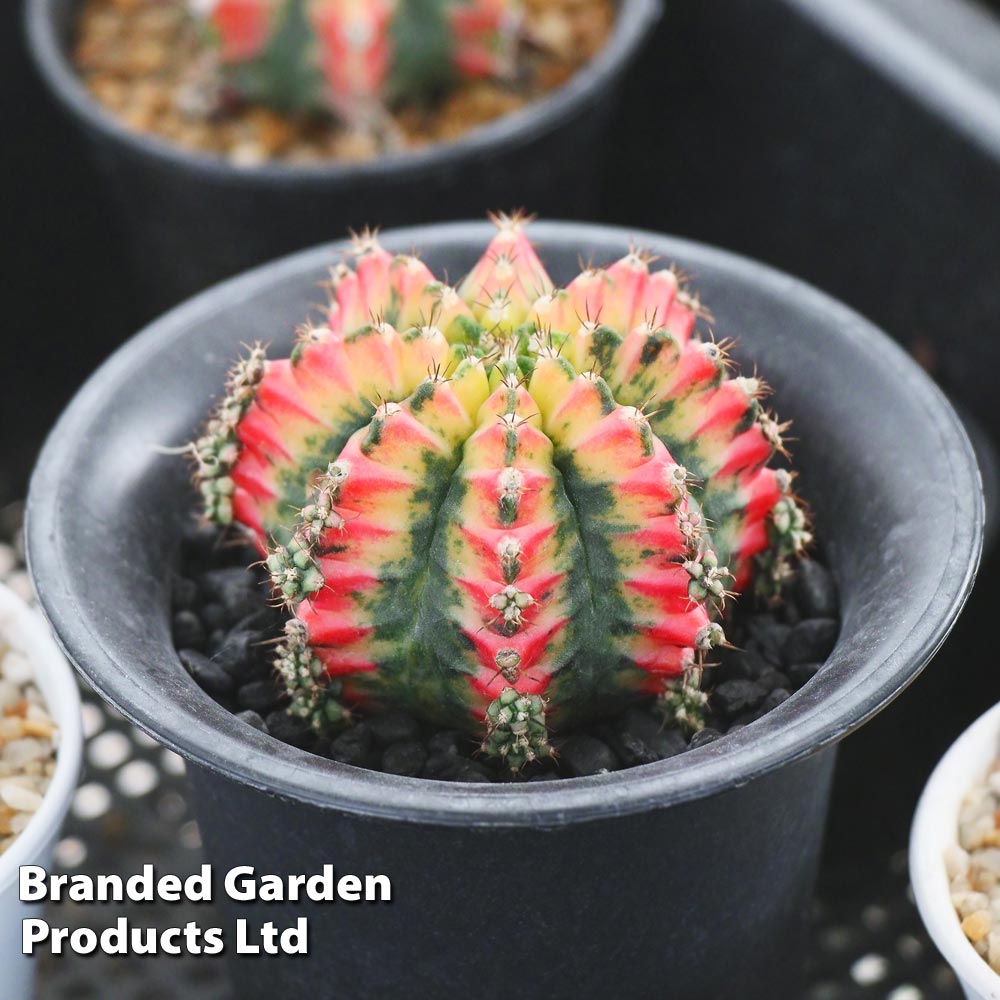
Cactus Gymnocalycium mihanovichii f. variegata Mixed Thompson &
Growing Conditions. Light: Some Gymnocalycium s are shade-seeking in the wild, among shrubs or grasses, while others grow completely exposed. Therefore, some will need light shading from the sun in the hottest months, but to overdo it, will result in the loss of flowers. Soil: The balance of the potting medium should be sufficient to allow good.

Gymnocalycium Cactus plants, Holiday cactus, Planting succulents
Gymnocalycium mihanovichii Variegata. Gymnocalycium mihanovichii var filadelfiense. Gymnocalycium mihanovichii var filadelfiense is usually a solitary cactus. It grows to a height of 4 cm and has a diameter of 5-6 cm. Gymnocalycium mihanovichii var stenogonum.
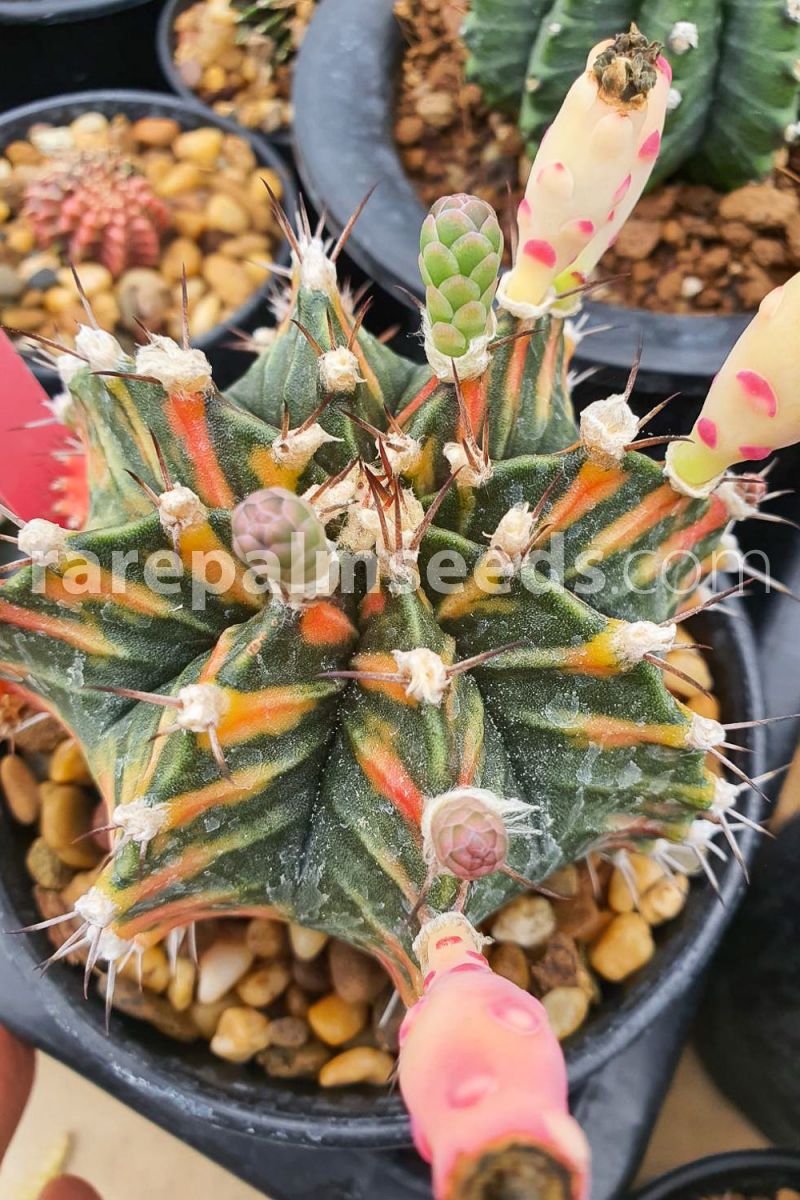
Gymnocalycium mihanovichii 'Variegata' Compra semillas en
The globular top cactus (Gymnocalycium mihanovichii) is grafted onto a host cactus (typically Hylocereus spp.) to form a grafted specimen. The top cactus (the scion) is a cultivar that lacks chlorophyll, relying on the host cactus (the rootstock) to survive.. Gymnocalycium mihanovichii 'Variegata': Variegated pattern in pink, yellow.
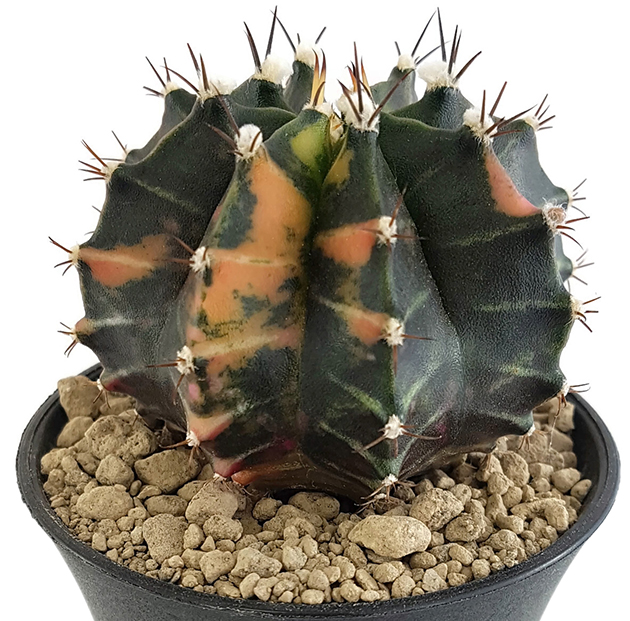
Gymnocalycium mihanovichii variegata einmaliger Mondkaktus
Gymnocalycium Mihanovichii Variegata can be propagated from seeds. Signs of a good seed is one that is plump, dark in color and slightly sticky. To propagate X from seed, one must prepare a soil mixture of well-draining potting mix, sow the seeds evenly and lightly press them into the surface. Lastly, gently water the soil using a spray bottle.
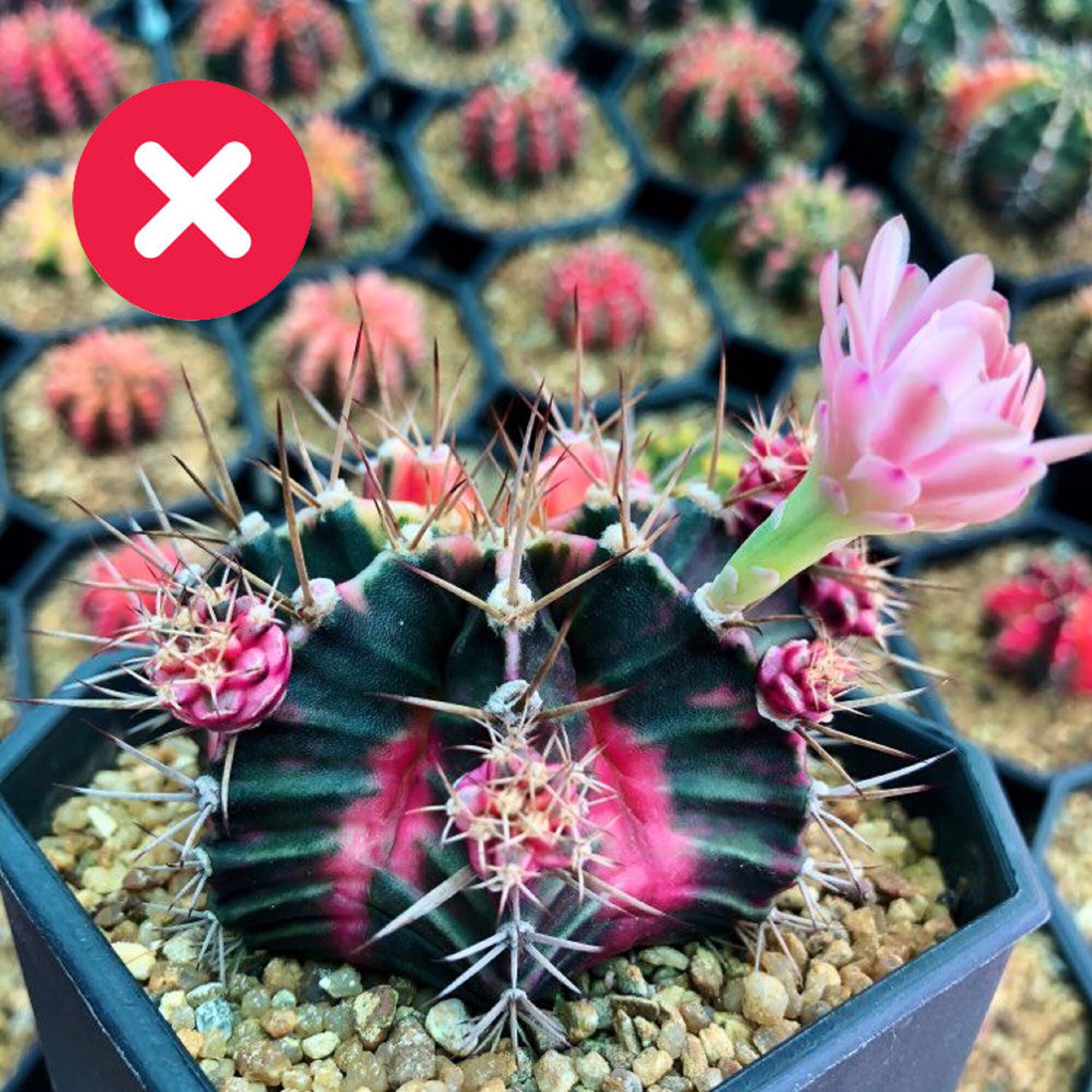
Fresh Flowers & Indoor Plants 200 Fresh Seeds Gymnocalycium
The Gymnocalycium Friedrichii belongs to a group of succulents that are known as dwarf succulents. This is because of their very small size. The name Gymnocalycium Friedrichii is not this succulent's full name. This is a shortened form of the name Gymnocalycium Mihanovichii Friedrichii.This plant is also more commonly known and referred to by its nickname of Chin Cactus.
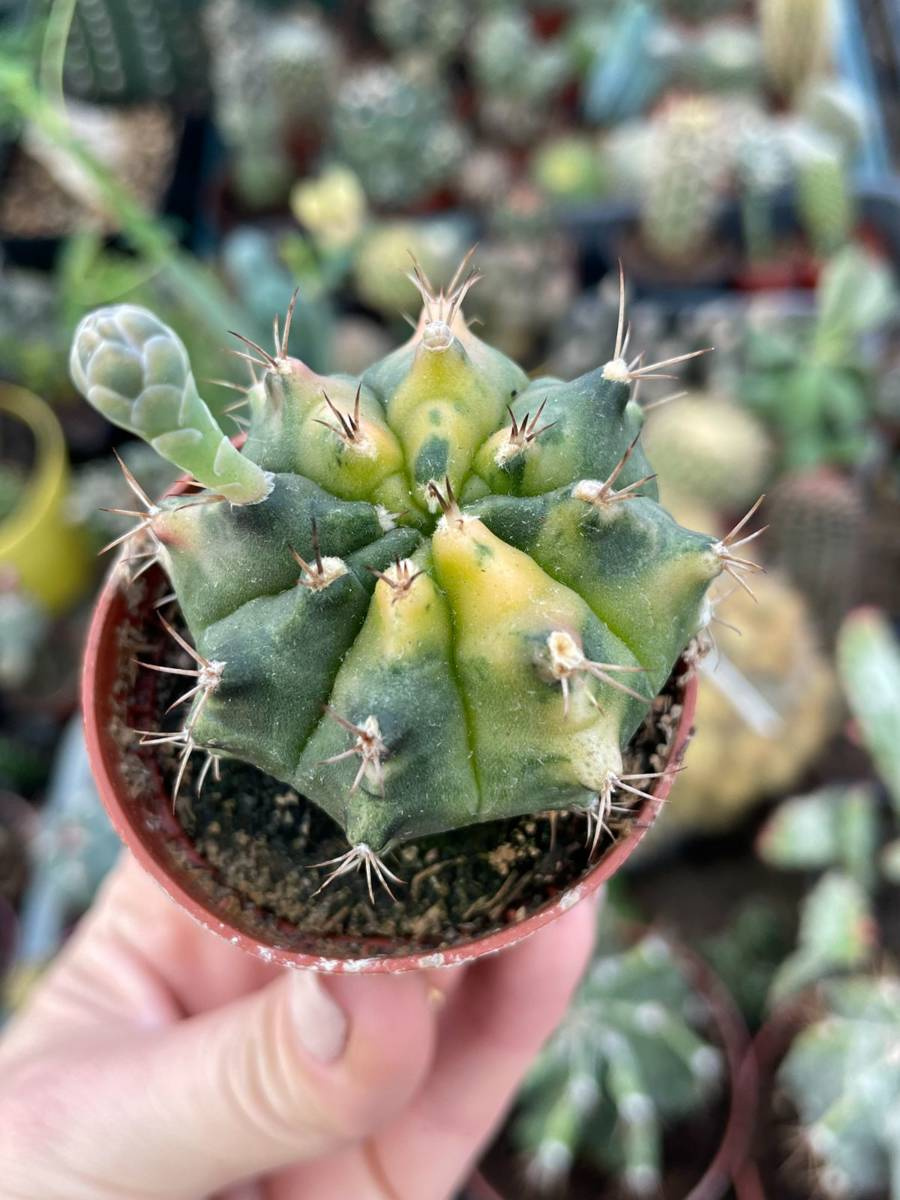
Gymnocalycium mihanovichii 'Variegata' Cactuses \ Gymnocalycium
29 € 25 €. Gymnocalycium mihanovichii f. variegata is a rarely offered, stunning cactus with red and yellow variegation! Commonly known as 'moon cactus', this dwarf cactus reaches only about five centimeters in size. Due to its unique variegation, each one of these cacti is one of a kind! OUT OF STOCK.
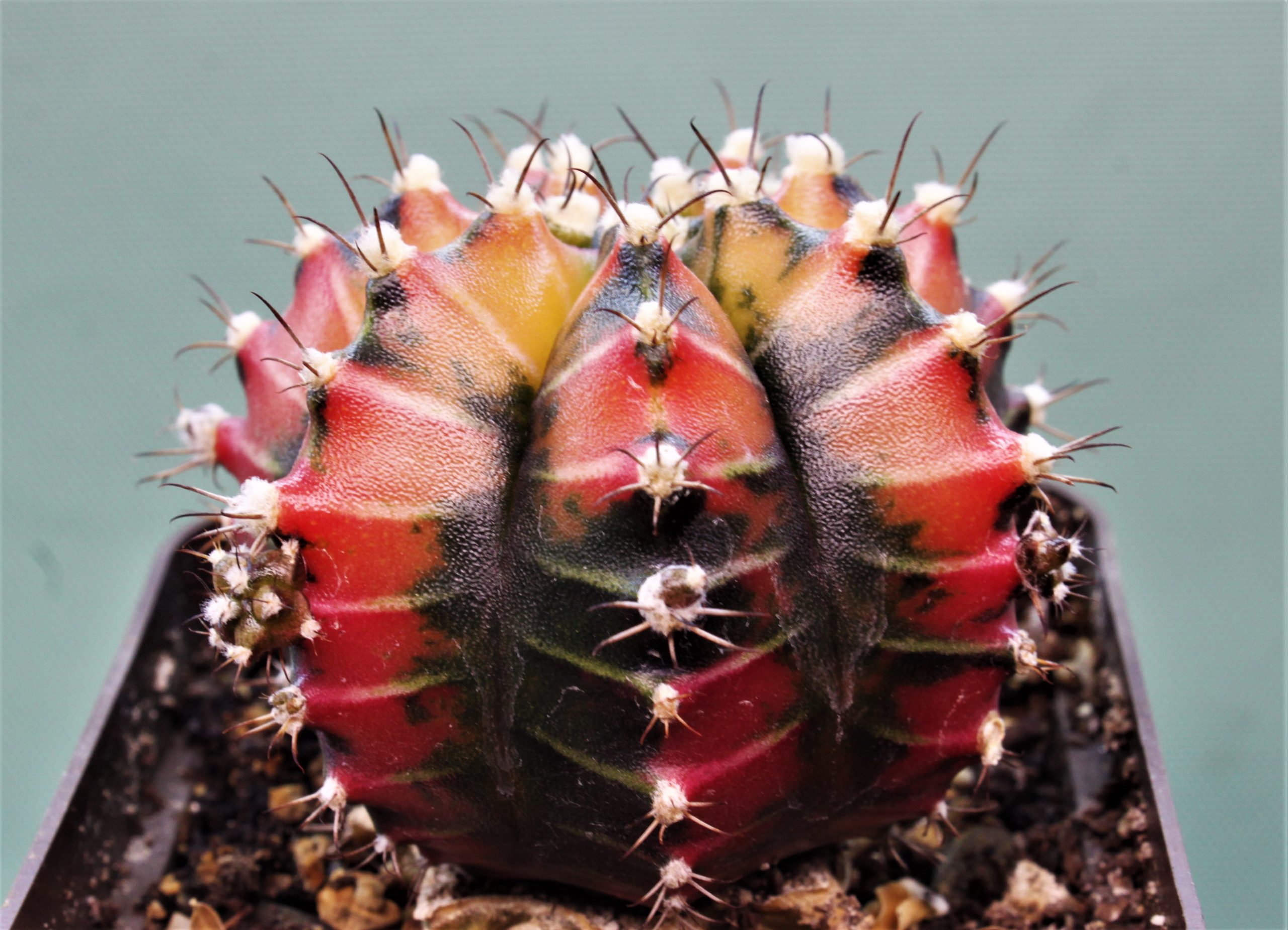
Gymnocalyciummihanovichiif.variegata —
Gymnocalycium mihanovichii grow and care - cactus of the genus Gymnocalycium, also known as Chin cactus, Gymnocalycium mihanovichii perennial evergreen used as ornamental plant, can grow in mediterranean, desert, subtropics, temperate or tropics climate and growing in hardiness zone 9b-12 and with the right care in hardiness zone 9a, and be aware that moon cactus doesn't like to grow in.

Rare Cactus Gymnocalycium Mihanovichii Variegata Etsy
Gymnocalycium Cactus Chin Cactus Features: An Overview. The Gymnocalycium genus contains about 70 species of cacti. Several popular species are highly cultivated as houseplants, such as G. Baldianum, G. Mihanovichii, G. Eurypleurum, and G. Bruchii. Chin cacti species exhibit a large diversity in appearance, with various shapes, dimensions, and.

Gymnocalycium mihanovichii variegated สวนจิ๋ว, พืชอวบน้ำ, จัดสวน
Gymnocalycium mihanovichii is a dwarf cactus with a spherical, gray-green, often reddish stem with usually eight narrow-edged, slightly notched ribs. This species is highly variable in the spination and color of the flowers. The stem typically grows solitary, slowly reaching up to 1.6 inches (4 cm) in height and 2.4 inches (6 cm) in diameter.

Gymnocalycium Mihanovichii 'Cristata Variegata' Bananalicious.pl
Gymnocalycium mihanovichii grows well at average room temperature throughout the year. For your cactus to survive through a winter freeze, bring it indoors or in the garage where the temperature drops below 40 degrees. Alternatively, you can cover them up with a light blanket or sheet to shield them from cold weather. The moon cactus will.

Gymnocalycium mihanovichii 'Variegata' Variegated Chin Cactus Buy
Gymnocalycium Mihanovichii variegated. (15) $33.10. Sold out. Additional discount is available during Checkout. Size: 3 Inch. Size Guide. 3 Inch. Cold weather?

Gymnocalycium mihanovichii variegata Cactus Seeds 100 Pcs Etsy
Gymnocalycium mihanovichii, also known as Moon Cactus, Ruby Ball, Hibotan Cacti, Red Cap, or Red Hibotan, is a species of cactus from the Cactaceae family. Moon Cactus is native to desert regions of South America, such as northeast Argentina, Brazil, Paraguay, and Bolivia. It grows at lower elevations up to 500 meters.

Gymnocalycium Mihanovichii 'Cristata Variegata' Bananalicious.pl
Temperature and Humidity. It's best for the Gymnocalycium mihanovichii (Moon Cactus) to grow in temperatures between 68° - 80° Fahrenheit (20 - 27°C), but it can handle temperatures as low as 35° Fahrenheit (2° C). The Moon Cacti are hardy plants but should never be exposed to temperatures below freezing because this may kill the plant.

Gymnocalycium mihanovichii f. prolifera variegated red Giromagi
This video will show you about how to propagate cactys pups (OFFSETS) Gymnocalycium mihanovichii variegata.The propagation cactus tips for beginners STEP by.

Gymnocalycium mihanovichii variegata multicolors cactus own Etsy
The Gymnocalycium mihanovichii succulent plant does not need to be given fertilizer. How to Propagate Gymnocalycium Mihanovichii. Gymnocalycium mihanovichii can only be propagated through the use of offsets. The small-sized offsets will appear at the top of the succulent. Step 1 - Carefully remove the offsets from the top of the plant.

gymnocalycium mihanovichii variegata 🌵กระบองเพชร แคตัส ยิมโนด่าง
Gymnocalycium mihanovichii is a species of cactus from South America. The most popular cultivars are varied mutants which completely lack chlorophyll, exposing the red, orange, or yellow pigmentation.These mutant strains are often grafted onto the hylocereus cactus, and the combined plant is called a "Moon Cactus". Moon cacti are commonly grown as houseplants and are also known as Ruby Ball.